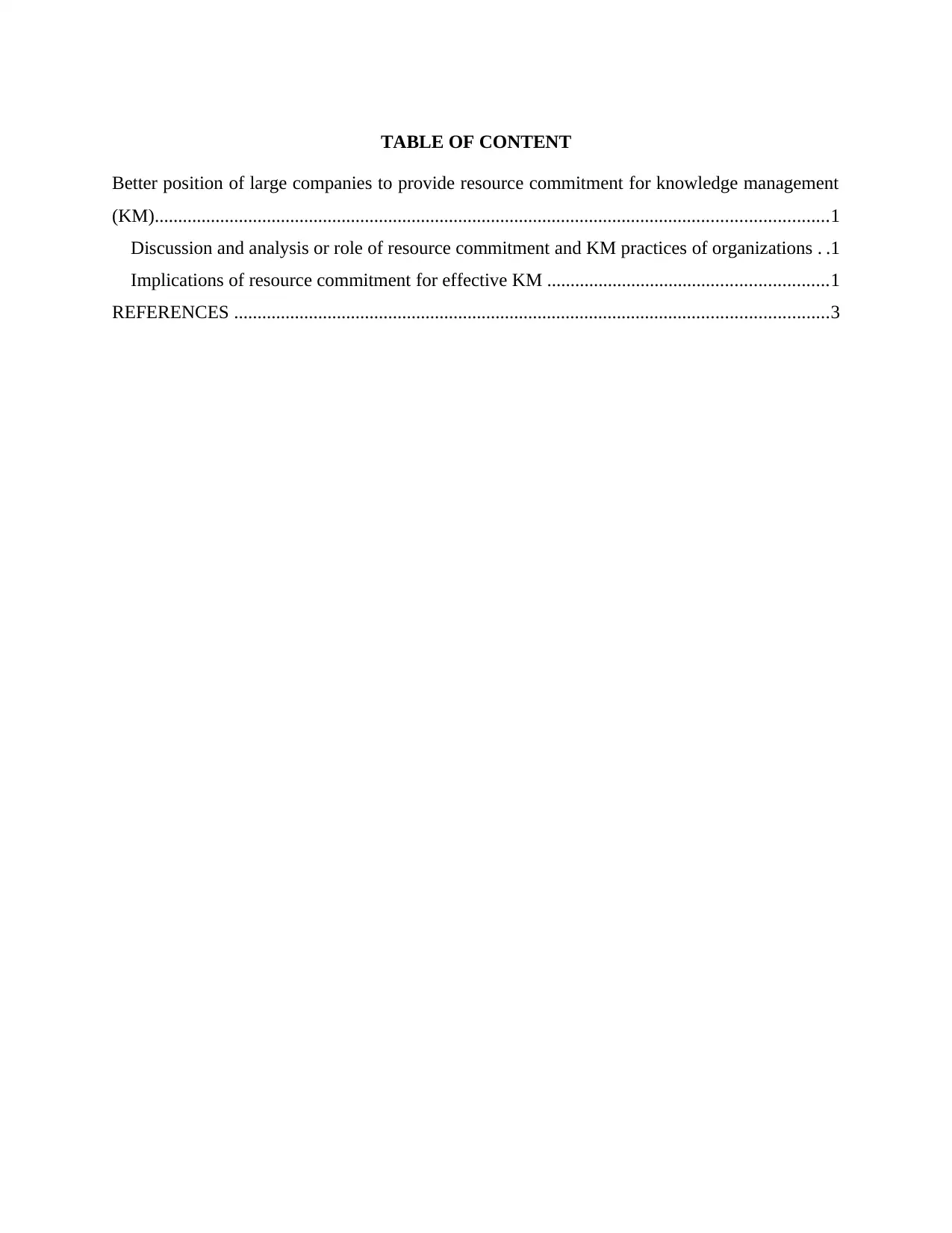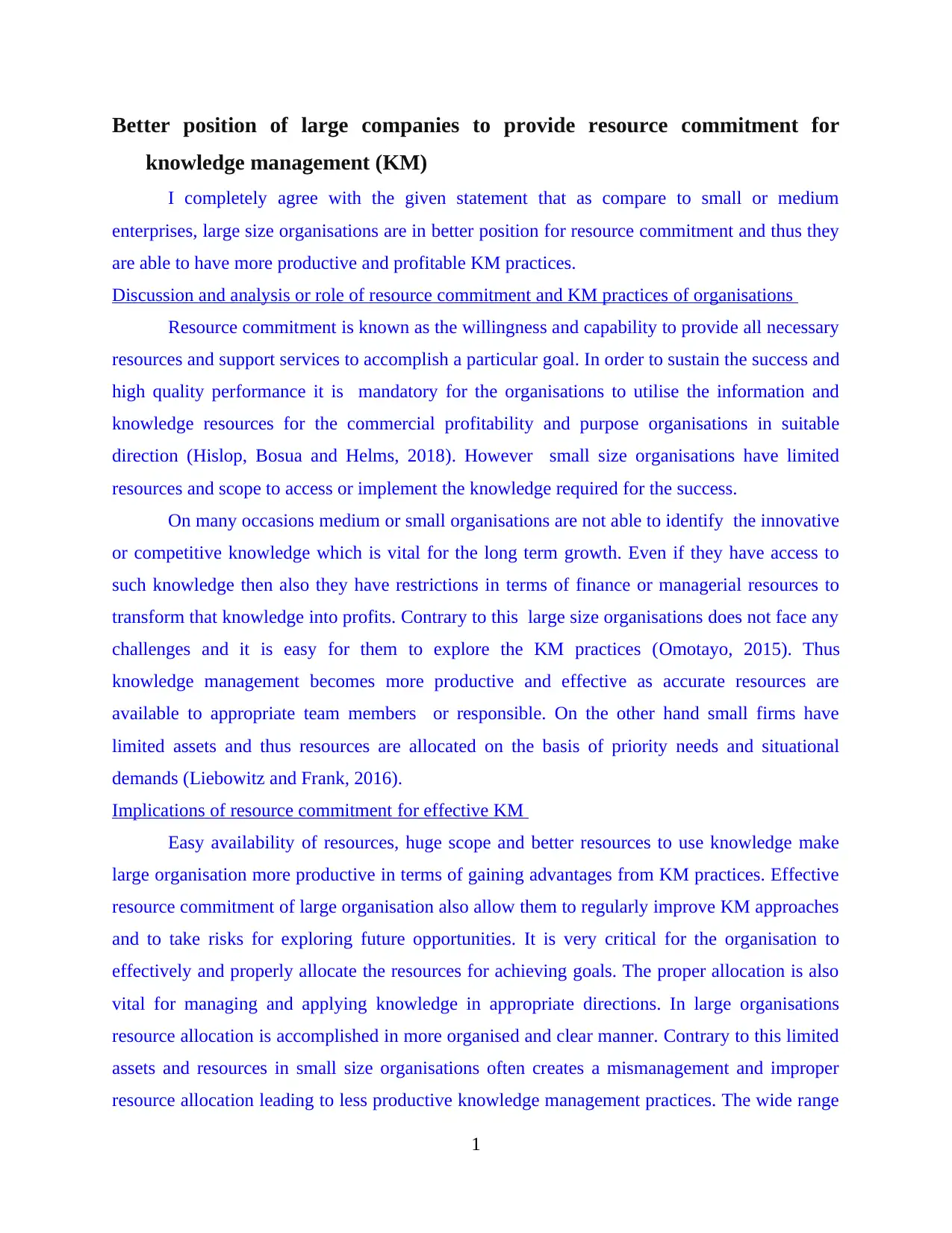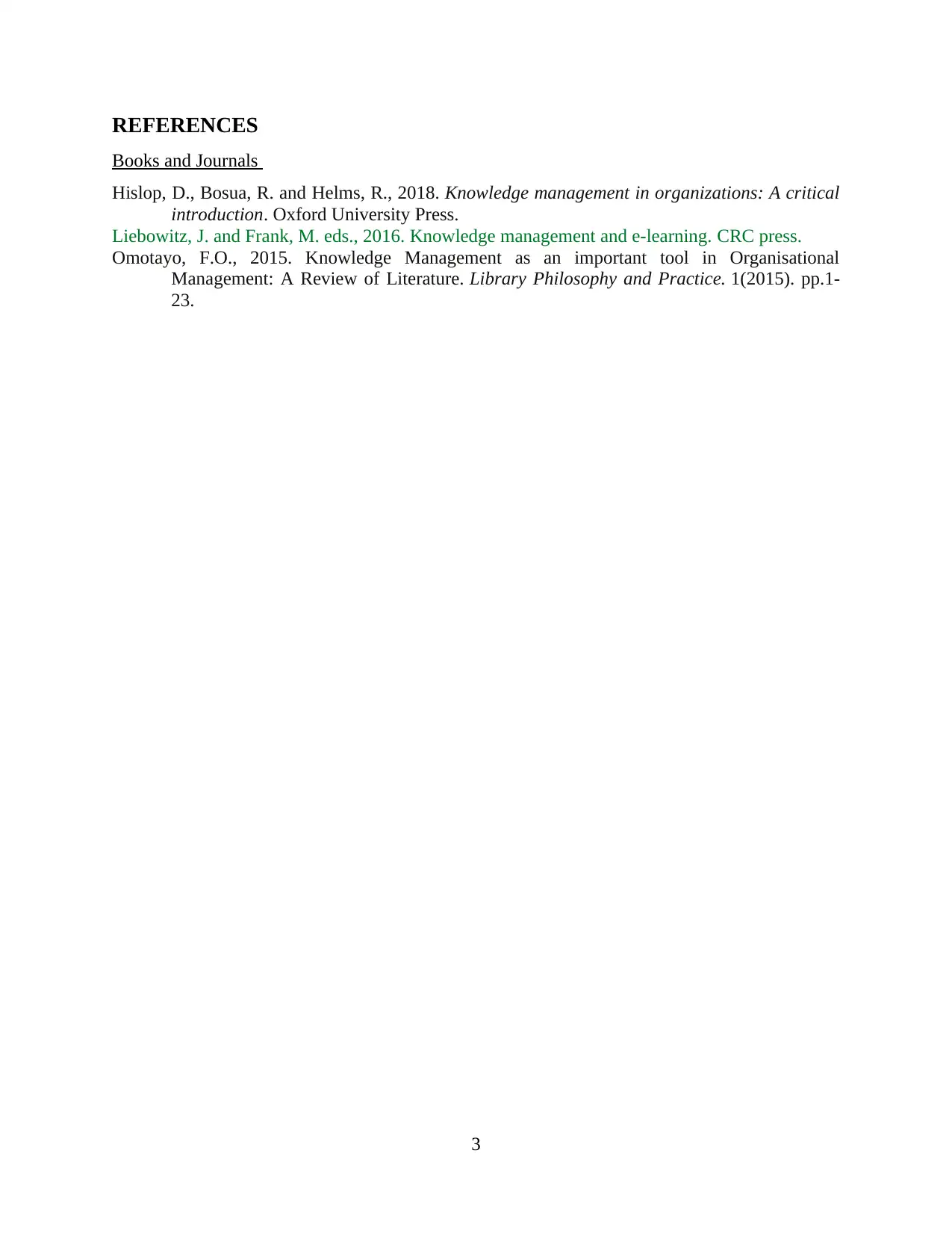Knowledge Management Report: Resource Commitment and Company Size
VerifiedAdded on 2023/01/17
|5
|585
|50
Report
AI Summary
This report examines the critical role of resource commitment in knowledge management, focusing on the differences between large and small organizations. It explores how resource allocation impacts the effectiveness of knowledge management practices, highlighting that larger organizations often have a significant advantage due to their greater financial and managerial resources. The report discusses the implications of this advantage, including improved knowledge sharing, more effective risk-taking, and better overall business development. It also emphasizes the importance of strategic resource allocation for maximizing the benefits of knowledge management. The report concludes by discussing the benefits of effective resource allocation and its role in creating a competitive edge.
1 out of 5












![[object Object]](/_next/static/media/star-bottom.7253800d.svg)